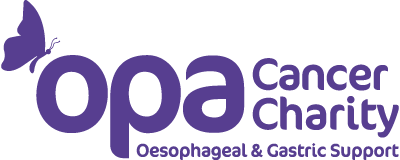Types of Oesophagitis
Eosinophilic Oesophagitis
Eosinophilic Oesophagitis is caused by too many eosinophils in the Oesophagus. This happened when your body overrespond to an allergen. In children, this can make eating difficult. According to the Boston Children’s Hospital, 1 in 10,000 children has this form of Oesophagitis. Common triggers include:
- milk
- soy
- eggs
- wheat
- peanuts
- tree nuts
- shellfish
Inhaled allergens, such as pollen, can also contribute to this form of esophagitis.
Reflux Oesophagitis
Reflux Oesophagitis is usually due to a condition known as gastroesophageal reflux disease (GERD). GERD occurs when stomach contents like acids, frequently back up into the Oesophagus. This causes chronic inflammation and irritation of the Oesophagus.
Drug-induced Oesophagitis
Drug-induced Oesophagitis can occur when you take certain medications without enough water. This causes medications to linger in the Oesophagus too long. These medications include:
- pain relievers
- antibiotics
- potassium chloride
- bisphosphonates (drugs that prevent bone loss)
Infectious Oesophagitis
Infectious Oesophagitis is rare and can be due to bacteria, viruses, fungi, or parasites. You are at increased risk for this type of Oesophagitis if you have a weakened immune system due to disease or medications. This type is common in people with HIV or AIDS, cancer, and diabetes.
Symptoms of Oesophagitis include:
- difficulty swallowing (dysphagia)
- pain when you swallow (odynophagia)
- sore throat
- hoarse voice
- heartburn
- acid reflux
- chest pain (worse with eating)
- nausea
- vomiting
- epigastric abdominal pain
- decrease in appetite
- cough
Very young children may have difficulty feeding. Contact your doctor if you or your child experience and the following symptoms and:
- shortness of breath or chest pain, especially if it does not occur while eating
- symptoms continue for more than a few days
- symptoms are severe enough to interfere with your ability to eat properly
- headache, muscle aches, or fever
Seek immediate medical attention if:
- You have chest pain lasting more than a few minutes, especially if you have a history of heart problems, elevated blood pressure, or diabetes.
- You think you may have food stuck in your Oesophagus.
- You are unable to consume even small sips of water.
Risk factors for Oesophagitis
Risk factors for developing Oesophagitis include:
- weakened immune system due to HIV or AIDS, diabetes, leukemia, or lymphoma
- hiatal hernia (when the stomach pushes through the opening in the diaphragm between the Oesophagus and stomach)
- chemotherapy
- radiation therapy of the chest
- surgery in the chest area
- medications to prevent organ transplant rejection
- immunosuppressive medications used to treat autoimmune diseases
- aspirin and anti-inflammatory medications
- chronic vomiting
- obesity
- alcohol and cigarette use
- a family history of allergies or Oesophagitis
Your chance of developing an infection of the esophagus is low if you have a healthy immune system.
Potential long-term health complications
Untreated esophagitis can lead to serious health complications related to the function and structure of the Oesophagus. Complications include:
- Barrett’s esophagus, damage to the lining of your Oesophagus, which can lead to a precancerous change in the tissue
- stricture, or narrowing, of the Oesophagus that can lead to obstruction and problems swallowing
- holes or ulcers in the Oesophagus (esophageal perforation)
How is Oesophagitis diagnosed?
Make an appointment to see your doctor if you have symptoms Oesophagitis. Be prepared to provide a full medical history, including any other diagnosed conditions. List all the prescription and over-the-counter medications you take.
Your doctor will likely perform a physical examination. They may also order diagnostic tests including:
- endoscopy with biopsies
- barium X-ray, also called an upper GI series
- allergy testing, which may include skin tests. Food elimination may be discussed after a diagnostic endoscopy.
Treatment for Oesophagitis
Treatment depends on the cause of your symptoms. Medications may include:
- antiviral medications
- antifungal medications
- antacids
- pain relievers
- oral steroids
- proton pump inhibitors (these medications block stomach acid production)
If food allergies cause your condition, you must identify trigger foods and eliminate them from your diet. The top 6 food allergens include:
- milk
- soy
- eggs
- wheat
- peanuts
- tree nuts
- shellfish
You can also ease your symptoms by avoiding spicy foods, acidic foods and drinks, and raw or hard foods. Take smaller bites and chew your food well. And ask your doctor for dietary guidelines. You should avoid tobacco and alcohol.
A procedure to dilate the Oesophagus may be necessary if the Oesophagus becomes too narrow and causes food to lodge.
If your symptoms are due to medication, you may need to drink more water, take a liquid version of the medication, or try a different medication. And you may need to refrain from lying down for 30 minutes after taking medication in pill form.
What is the long-term outlook?
Chronic Oesophagitis can cause narrowing of the Oesophagus or tissue damage without treatment. Your chances of developing esophageal cancer are higher if the cells lining your Oesophagus have changed due to chronic acid exposure.
You can lower your risk of future bouts of Oesophagitis by avoiding identified triggers.
Your outlook depends on the cause and on your overall health. Most people improve with treatment. Healthy people often recover within three to five days, even without treatment. Recovery may take longer if you have a weakened immune system.
This article is from Healthline – https://www.healthline.com/health/esophagitis#treatment


